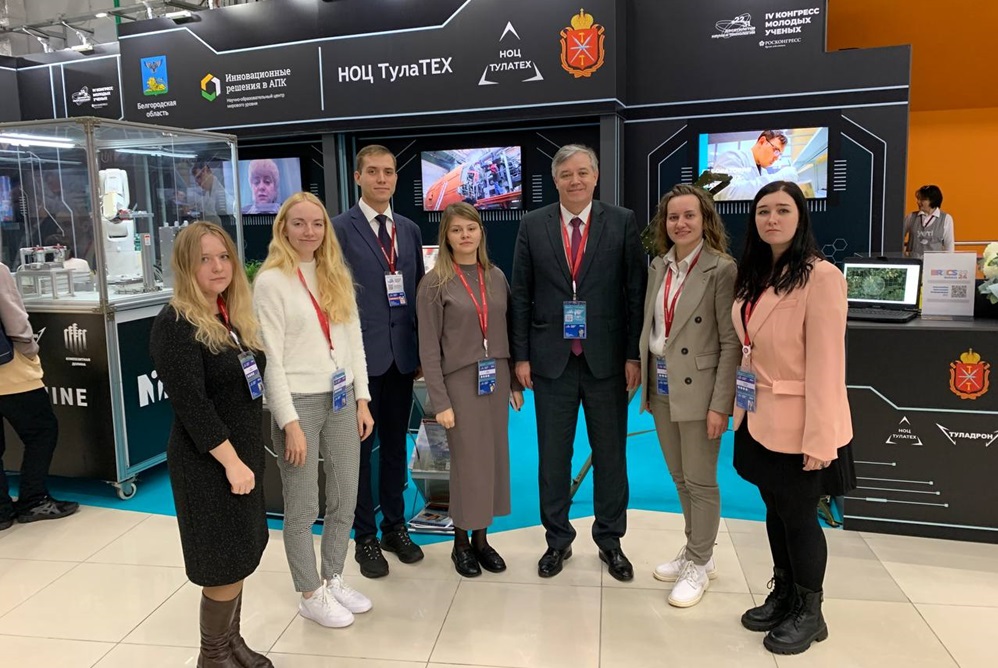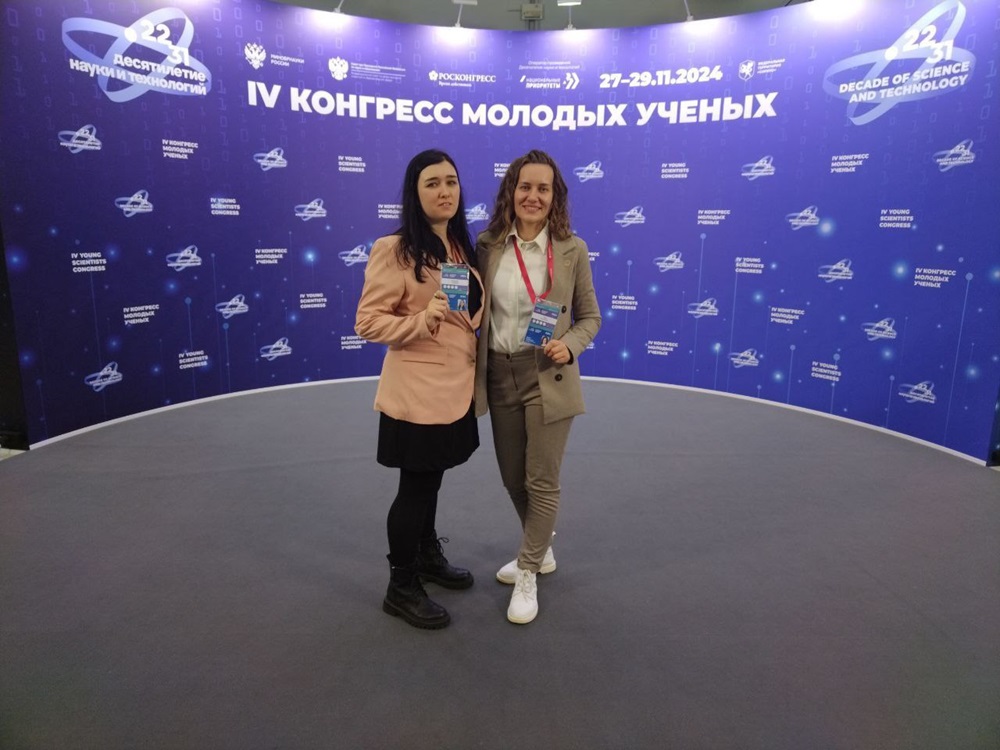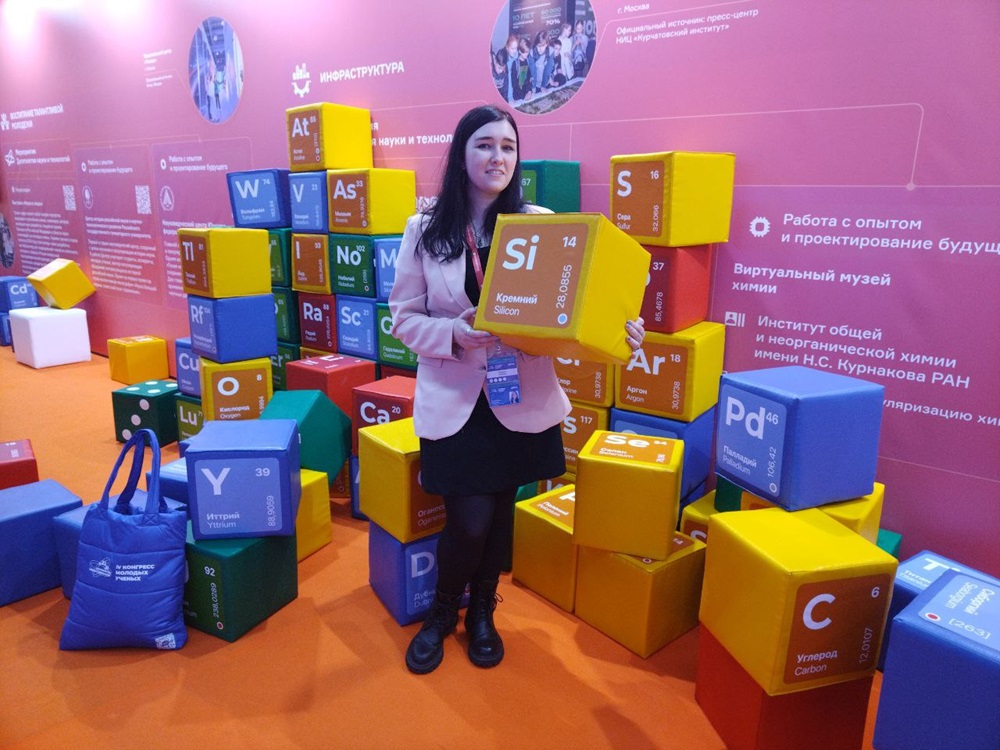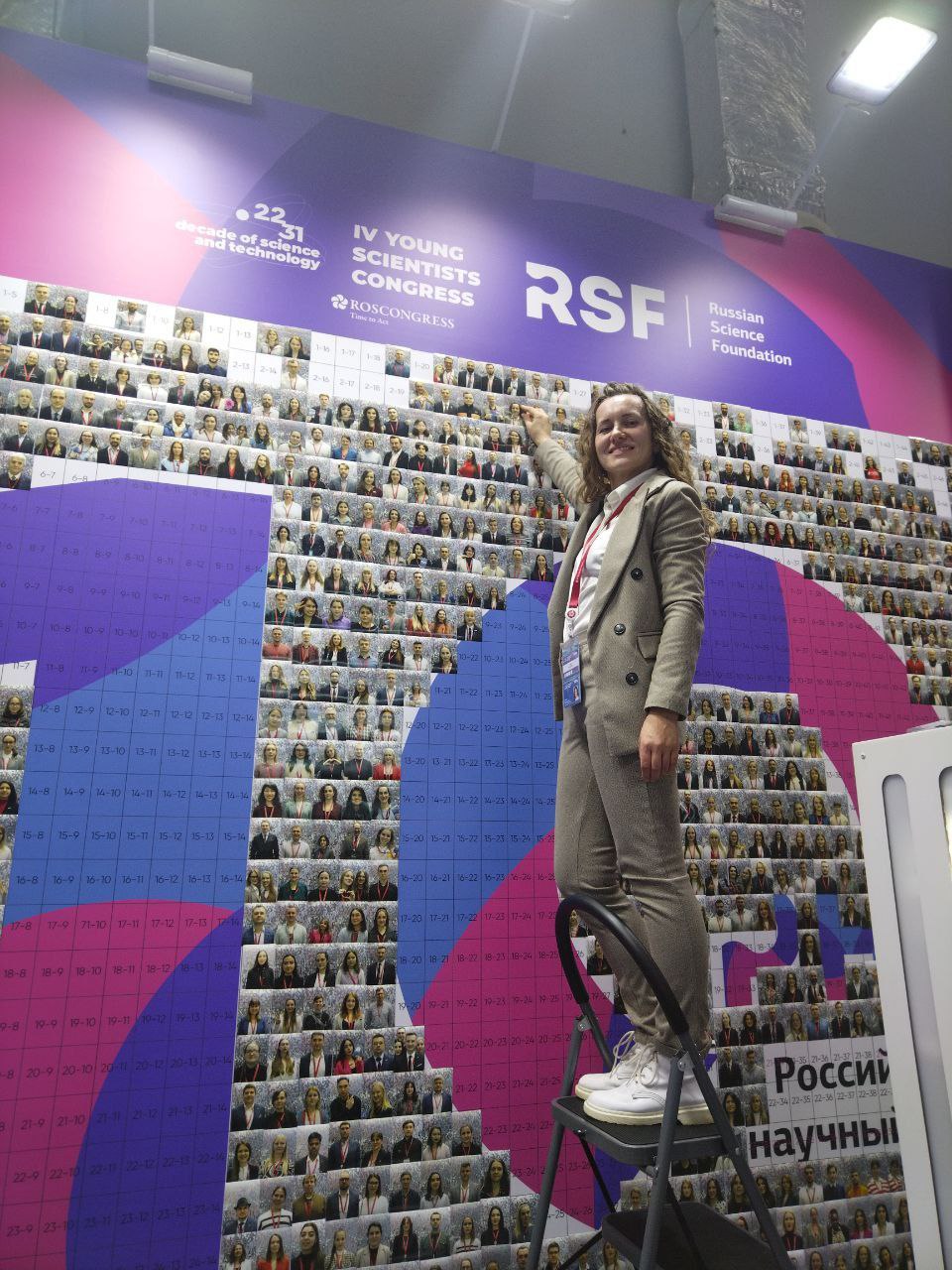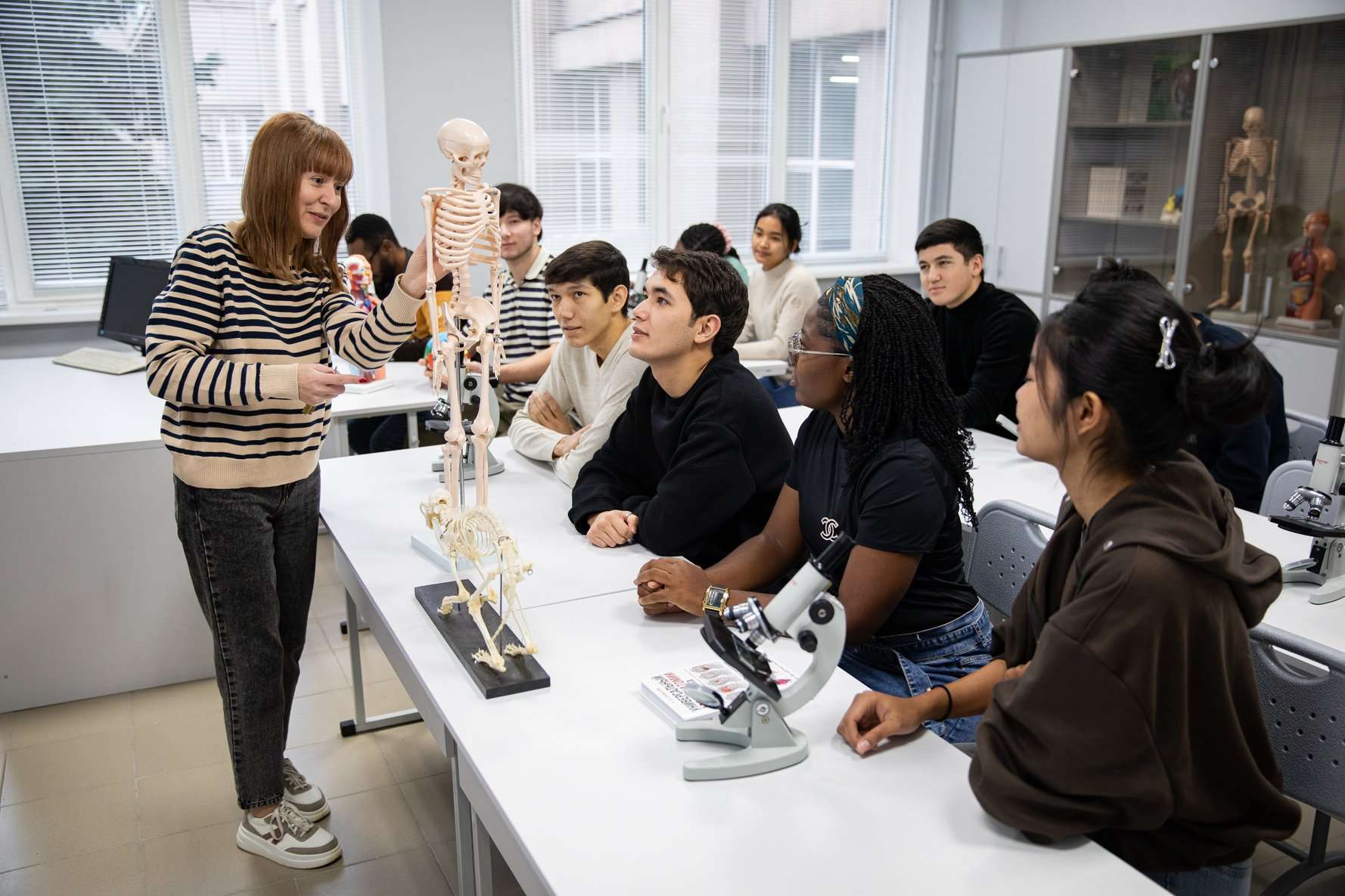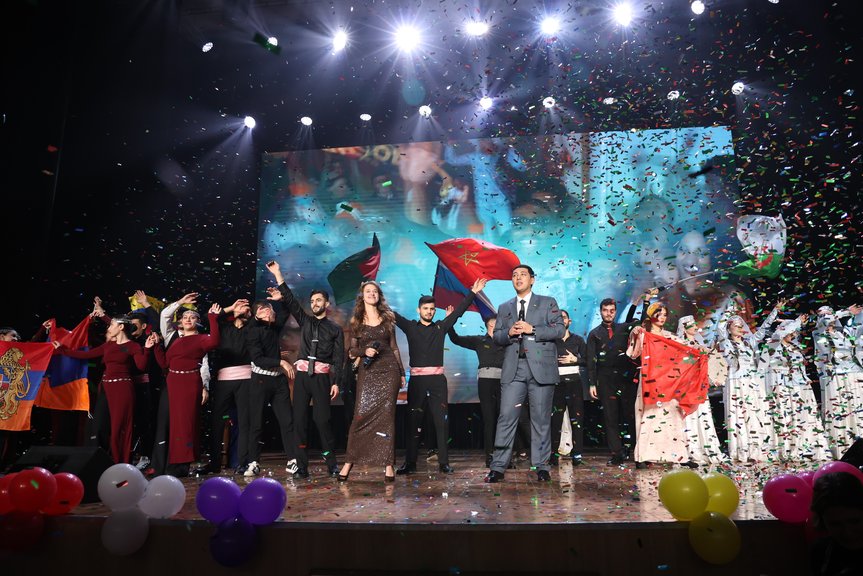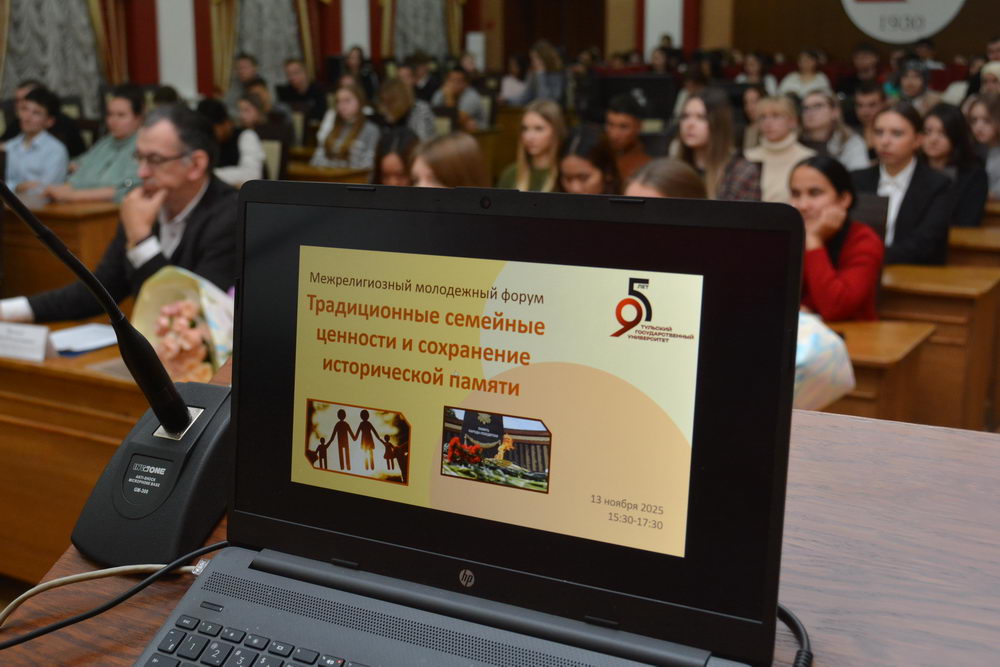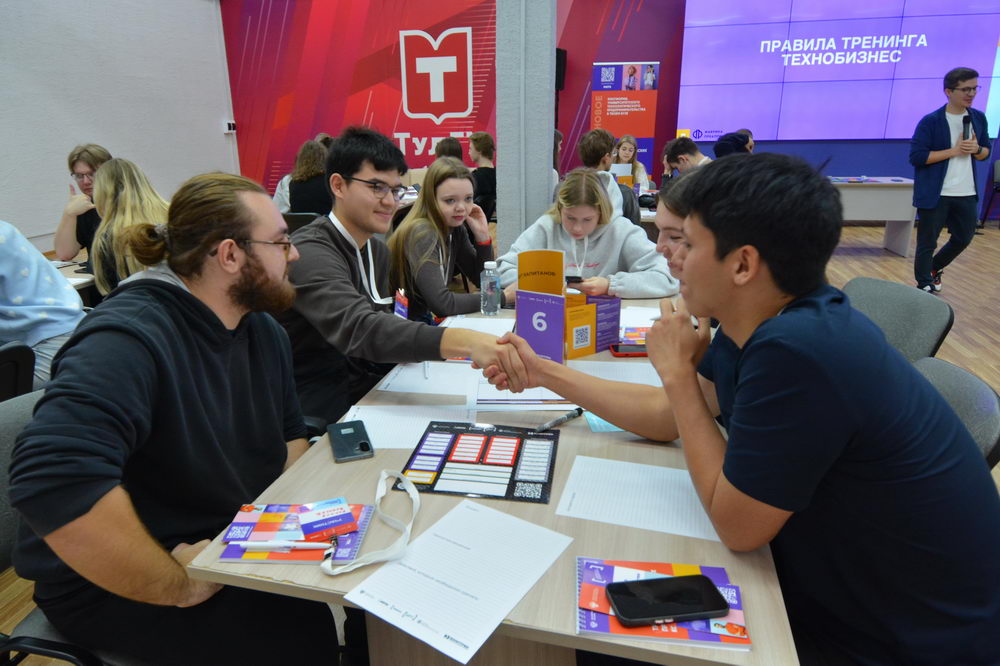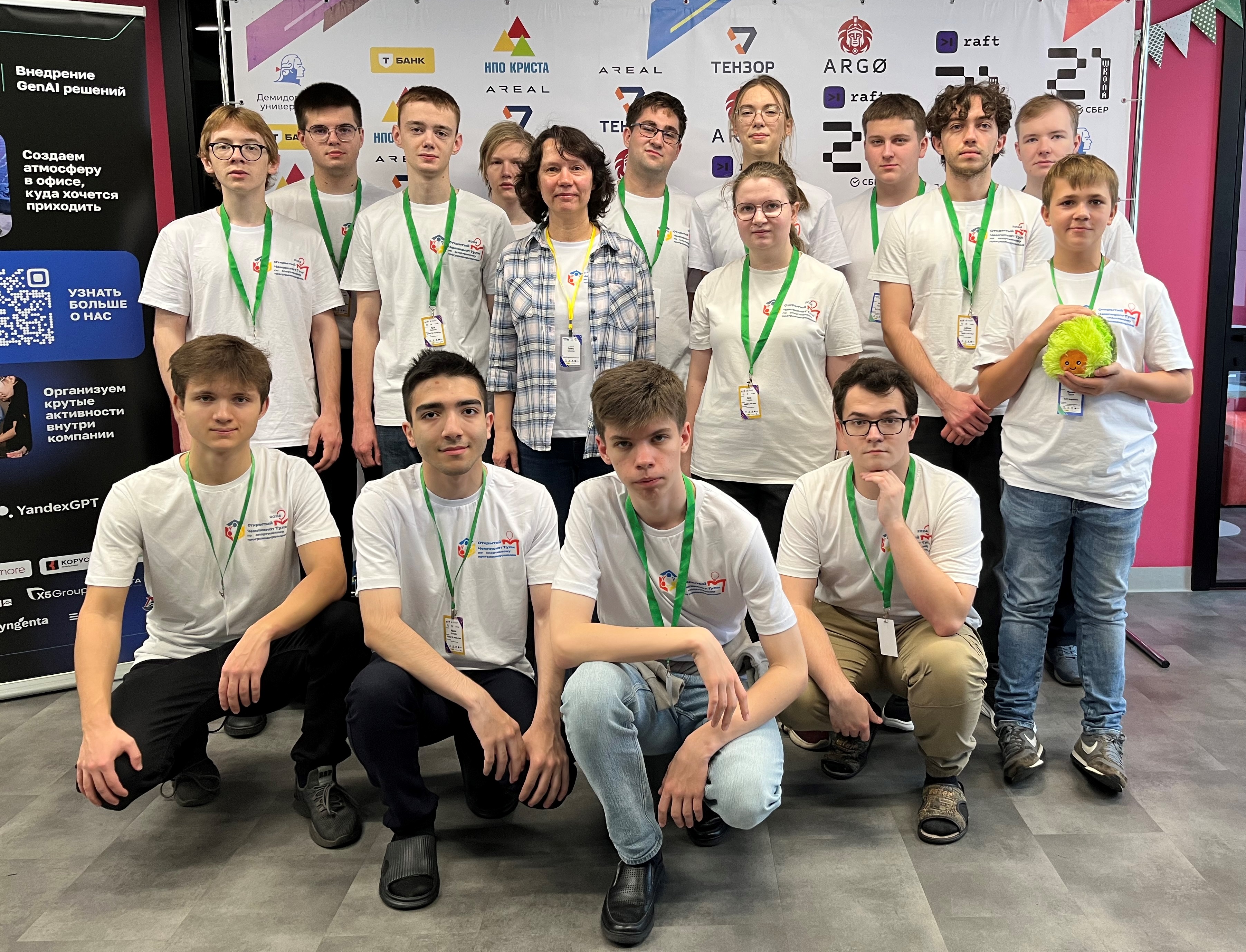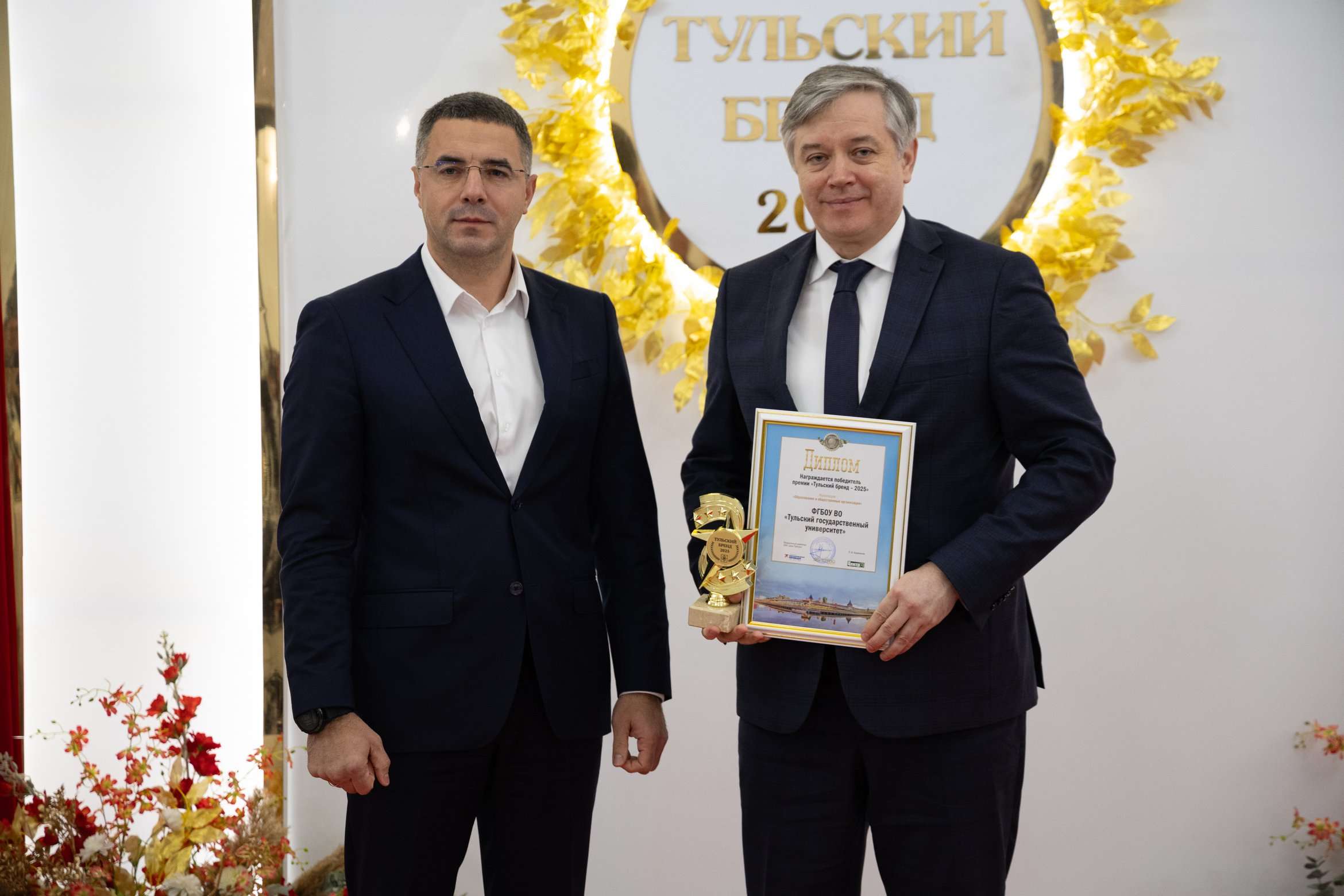- 28.11.2024
TulSU at the main meeting of scientists
Conference on the move, presentation of the project “Techpreds”, the largest meeting of representatives of youth scientific laboratories - representatives of Tula State University participate in these and a dozen other events within the IV Congress of Young Scientists, which takes place from 27 to 29 November on the federal territory “Sirius”.
The Congress is the key annual event of the Decade of Science and Technology in Russia, announced by Russian President Vladimir Vladimirovich Putin in 2022. This year's Congress brings together about seven thousand guests from sixty countries, 170 events are planned, including business sessions, open dialogues and round tables, presentations, discussions, cultural and sports events.
TulSU is represented at Sirius by Darya Lavrova, deputy director of the Natural Science Institute, senior researcher at the Laboratory of Environmental and Medical Biotechnology, Inessa Grachyova, acting head of the Research Department, Olga Kamanina, leading researcher at the Laboratory of Biologically Active Compounds and Biocomposites, Elizaveta Lantsova, junior researcher at the same laboratory, Anna Kharkova, associate professor at the Chemistry Department, and Sergey Shalinkov, engineer at the Tula Engineering School.
On the opening day of the Congress of Young Scientists, Valeriy Nikolayevich Falkov, Head of the Russian Ministry of Education and Science, took part in its work. He met with the heads of youth laboratories and spoke about the prospects of this programme until 2030: 800 more such laboratories are planned to be opened in Russia. Currently, 940 laboratories have already been created, of which 578 in scientific organisations and 362 in universities.
Seven youth scientific laboratories work in Tula State University, reminded Darya Lavrova. According to her, an important outcome of the meeting with the Minister was the prospect of launching a school for heads of youth laboratories.
- The key point is interaction with industrial partners, which will allow to form a personnel scientific reserve, an Internet resource with a list of all youth laboratories in Russia for possible collaborations will be opened, consortia to solve larger problems, - said the researcher.
Among the unusual events of the congress Darya Lavrova visited the “Conference on the move” - it is a sports lecture while Nordic walking for 5 kilometres. The walk with poles started on the territory of the Olympic Park at 7:30 a.m. During it four scientists presented their lectures, and the participants chose the best speaker by voting. Once again, the surprise was Angelina Potapova, a graduate of the Department of Biotechnology at TulSU, author of the book “How to Friend Genes in Cells”.
At the Congress of Young Scientists, Sergey Shlynkov presented to the specialists an unmanned multifunctional ground platform designed to test the use of low-density materials and artificial intelligence technologies in real conditions.
- The platform makes it possible to perform the task in hard-to-reach places or in locations dangerous for humans, which in turn reduces costs and overall risks, explained a specialist from the Tula School of Engineering.
Many meetings take place at Sirius during the days of the congress. Young researchers from different regions get acquainted, exchange experience, and agree on co-operation.
- It was very useful for me to participate in the seminar of the Russian Science Foundation dedicated to grant support and scientific expertise of projects, - said Yelizaveta Lantsova. - I received useful information that will be helpful in the future for participating in grant competitions. Another important event I attended was the lecture “Scientific Communication: How Scientists Interact with Each Other and Present Research Results to Society”. It is not a secret that researchers, being immersed in their field, do not always easily find like-minded people and successfully present their developments. And this is important thing to learn!
Yelizaveta added that she liked the stand of the Murmansk region with the technology of growing grass in polluted areas of the Far North, and remembered the unusual stands of Sibur and Rosatom.
Dmitriy Litvinov
Photo provided by the heroes of the material


